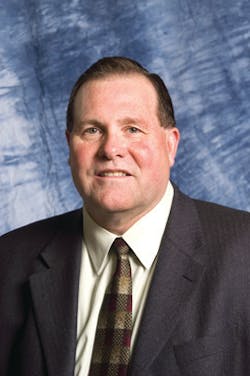Fire Politics: Communicating Your Value Can Define the Future
Writing about national politics tends to be depressing these days. Instead of focusing on all of the Washington, DC, craziness in this column, I want to visit instead about something that might be even more sinister. I’m referring to the recent surge of articles appearing in national publications that have been extremely critical of the fire service. There has been a lot of “less-than-positive” pieces written about the fire service in the past, but it has been picking-up in frequency and attention. There actually seems to be a theme to the content (as if it were planned), and much of what is being written is quite familiar and far from flattering. The articles I’m referring to have consistently addressed the following topics:
• Cities don’t need as many firefighters today
• Fire departments cost too much and need more fiscal scrutiny
Taking up positions
The fire service has heard this before over the years, but negative criticism seems to be getting more play, and potentially more traction. In fact, the articles I’m referring to were all published during the past two months. I want to share with you a little about the arguments and positions the authors make to justify their assertions (in italic font), followed by some of my thoughts in response (in standard font).
Cities don’t need as many firefighters today: Fire departments are responding to fewer fires. Of the total call volume of most fire departments, only about 5% of them relate to fires. Firefighters really don’t fight fires that often anymore, and they don’t deserve the “hero image” they enjoy from the public.
This assertion fails to recognize reality on many levels. It may be accurate that many fire departments don’t experience the number of working structure fires that they did in past years, but that’s not the case in all cities. Critics of the fire service critics often don’t recognize or acknowledge that fire departments have morphed over the years into all-hazards response organizations. This shift has occurred steadily over the past four decades or more – and not by accident, but by design.
In the modern fire department, 80% of the current emergency calls are responses to EMS incidents. Add to the total call volume emergency responses to hazardous materials incidents, technical rescues, human-caused and natural disasters and wildland fires, fire departments are providing more life-saving emergency services to the public than ever before – and in very cost-effective and professional ways. The training and equipment necessary to perform this full range of services are significant, and the incidents are often high-risk situations for the public, firefighters or both. It remains critical that fire departments have the resources required to effectively and safely deliver the full range of services that the public requires of them.
One other point to remember is that in opinion polls, firefighters remain the most trusted and respected public servants in the eyes of the public. Fire chiefs and union officials would be wise to strongly encourage their members to behave and perform in ways that are consistent with that image so it is not diminished in the future.
Fire departments cost too much and need more fiscal scrutiny: Consultants assert that there is a “new normal” to funding public safety in general, including fire departments. Since the great recession of recent years, cities have decided that they cannot fund past staffing levels, cannot comply with industry standards and should no longer negotiate the level of pay and benefits that they have in the past with firefighter labor unions. Some also assert that firefighters enjoy too much down-time while on duty at fire stations, due primarily to the culture of the 24-hour shift. They insist that fire chiefs must find better ways of deploying their resources so they are more productive and more closely supervised.
In the current environment, cookie-cutter studies are produced by certain consultants in cities across the country. I review many of these documents each year, and on more than one occasion, I have actually found the wrong city cited within their reports. Even the most novice reader can figure out that much of the content of the document is simply copied from previous studies with the names of the clients changed within the document.
The pre-determined goals of these studies revolve around cutting fire department staffing levels and eliminating fire stations through nothing more than a budget exercise – without regard to service delivery or safety requirements. The operational realities of their proposals are minimized and do not find their way into the management equation in the end. The same can be said of the risks posed to firefighters and the public by certain budget reductions. They too seem to be absent in far too many discussions.
On top of that, some fire service consultants, and certain public officials, have little respect for the national performance standards that have been developed to guide our industry. It would be hard to argue against the fact that our nation has experienced a concerted political effort (especially in recent years) to demonize public employee labor unions. It has become vogue in some places to publicly voice perceived disadvantages of employing paid union firefighters.
In your defense
The potential impact to a community of not adequately supporting and funding their public safety needs would be unacceptable, especially after the fact. For political reasons, and operational reasons as well, fire service professionals must be capable of successfully debating the types of assertions I’ve mentioned above. These debates may take place in various public and private settings. Within this process, leaders must keep in mind the importance of accurate data in making arguments during such debates.
Don’t get me wrong; there are credible fire service consultants out there for hire, but the biased consultants who exist are not going away any time soon. Let’s ensure that fire department leaders continue to “bone-up” on current issues going on nationally in the fire service before they are faced with a fire department attack that they are not prepared to deal with right in their own community.
For more news about fire service politics, visit: http://www.firehouse.com/topics/politics-law.
Dennis Compton presents “If You’re an Officer, Be a Leader” and “Critical Fire Department Challenges Can Have Political Solutions: What Are They?” and moderates the “Chiefs Panel” at Firehouse World 2014.
DENNIS COMPTON, a Firehouse® contributing editor, is a speaker and the author of Progressive Leadership Principles, Concepts and Tools, the When in Doubt, Lead! books, the book Mental Aspects of Performance for Firefighters and Fire Officers, and many articles, chapters and other publications. He was the fire chief in Mesa, AZ, for five years and assistant fire chief in Phoenix, where he served for 27 years. Compton is past chairman of the Executive Board of the International Fire Service Training Association (IFSTA) and past chairman of the Congressional Fire Services Institute’s National Advisory Committee. He is currently chairman of the National Fallen Firefighters Foundation Board of Directors.
About the Author

Dennis Compton
Chief
DENNIS COMPTON is a well-known speaker and the author of several books, including his most recent offering titled Progressive Leadership Principles, Concepts and Tools. He also authored the three-part series of books titled When in Doubt, Lead, the book Mental Aspects of Performance for Firefighters and Fire Officers, as well as many articles, chapters and other publications. Compton was the fire chief in Mesa, AZ, for five years and an assistant fire chief in Phoenix, where he served for 27 years. He is past chairman of the Executive Board of the International Fire Service Training Association (IFSTA) and past chairman of the Congressional Fire Services Institute (CFSI) National Advisory Committee. Compton is currently the chairman of the National Fallen Firefighters Foundation (NFFF) Board of Directors and co-chairs the Fire Service-Based EMS Advocates Steering Committee.
